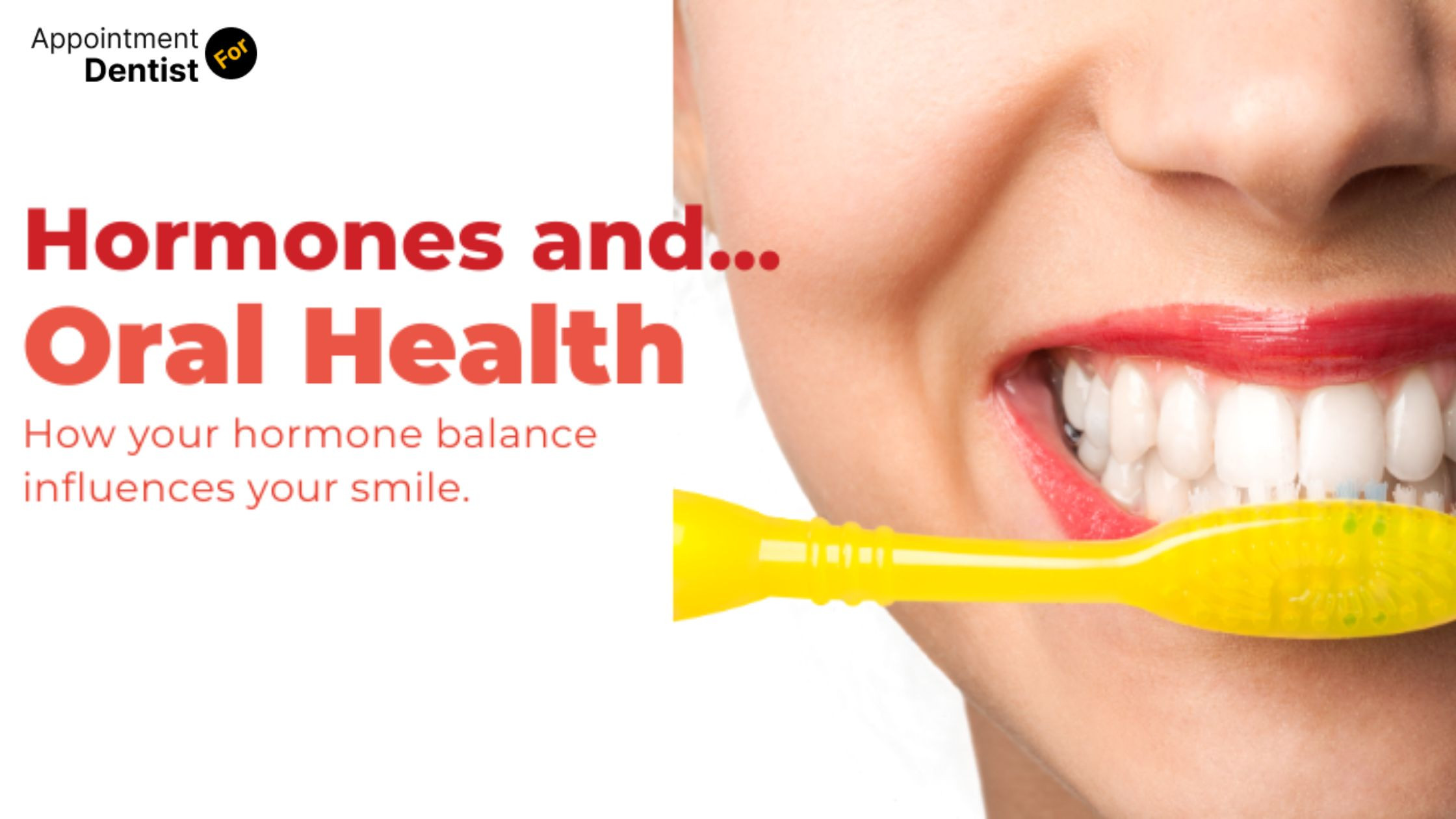How Hormonal Changes Affect Oral Health
Posted on August 07, 2024 by Admin

How Hormonal Changes Affect Oral Health
With the different phases of life, our bodies also go through various hormonal changes that may profoundly affect our overall health not excluding oral health. From puberty to menopause, such fluctuations in hormone levels manifest in a number of oral health problems if not managed properly.
The Impact of Hormonal Changes on Oral Health
Since hormones control a lot of functions within our organism, they will do it for the health of our teeth and gums. During periods of changing hormonal levels, changes take place in the way the body reacts to plaque; therefore, one can become more prone to problems in dental health. This may happen during puberty, menstruation, pregnancy, and menopause.
Puberty
During puberty, there is a significant elevation in sex hormones, especially estrogen and progesterone. These hormonal changes may make the gums sensitive, and this sensitivity can be a precipitating factor for inflammation and bleeding, a condition called puberty gingivitis.
Also Read: Things You Should Know About Dental Insurance
Menstruation
Many women report a change in their oral health during the menstrual cycle. Some develop canker sores, while others may experience swollen, red, or bleeding gums1. These are mostly transient and resolve following the menstrual period.
Pregnancy
Hormonal changes associated with pregnancy can have a marked effect on oral health. Women in pregnancy are at an increased risk of developing pregnancy gingivitis, characterized by swelling, redness, and bleeding in the gums. Sometimes, pregnancy may also result in the formation of pregnancy tumors, which are non-malignant growths that appear on the gums.
Menopause
As women enter menopause, estrogen levels in the body begin to drop. This type of hormonal fluctuation can lead to a variety of dental problems, from xerostomia to burning mouth syndrome and increased susceptibility to gum diseases. Menopausal women may also experience changes in taste perception and be more predisposed to infections in the mouth area.

Managing Oral Health During Hormonal Changes
Good oral hygiene practices, such as brushing teeth at least twice a day with a soft-bristled toothbrush and flossing once a day, are particularly important to maintaining good oral health during times of hormonal fluctuation. Regular dental check-ups and cleanings help in discovering or even preventing many oral health issues.
In some cases, your dentist may suggest other ways to manage special oral health issues associated with hormonal fluctuations. For example, if you are pregnant, your dentist may suggest that cleanings be performed more frequently to help control plaque and prevent a form of gum disease known as gingivitis.
Hormonal changes increase the sensitivity of the gums and make them prone to inflammation, thereby giving rise to conditions like puberty gingivitis and pregnancy gingivitis.
Must Read: 7 Mistakes to Avoid When Choosing a Dental Plan
Conclusion
Hormonal changes can lead to mouth conditions such as gingivitis, dry mouth, and oral infections. Only by being aware of the changes in the hormonal level and of their impact on dental health is it possible to forestall the onset of such conditions or deal with them effectively. Regular dental check-ups and open lines of communication with your dentist are very important in keeping your teeth and gums in the best shape during all the passing stages of life.
Faqs
-
1. Can hormonal changes cause oral cancer?
Hormonal changes themselves do not lead to oral malignancy. However, there have been studies to suggest that some forms of oral cancers may have a hormonal background.
-
2. How can I prevent oral health problems during hormonal changes?
Good oral hygiene practices, a well-balanced diet, and regular dental visits can help in the prevention of oral health problems during periods of hormonal changes.
-
3. Can hormonal changes lead to dry mouth?
Yes, dry mouth conditions can be related to hormonal changes. This is more common during the menopause period. Xerostomia puts one at high risk for developing tooth decay and gum diseases.
-
4. Should I mention my hormonal changes to my dentist?
Yes, you should inform your dentist of any hormonal changes that are happening within you, as he/she would be in a position to guide better on a personal treatment plan regarding your oral health.
Recent Post
- The Importance of Oral Health Education for Children
- How to Choose the Right Orthodontic Treatment for Adults
- The Link Between Oral Health and Stroke Risk
- How to Address and Prevent Gum Recession
- Innovations in Dental Anesthesia: Pain-Free Procedures
- The Role of Saliva in Oral Health: Functions and Disorders
- Exploring Holistic Dentistry: What You Need to Know
- How Oral Health Affects Your Immune System
- The Benefits of Using Dental Probiotics
- Oral Health and Pregnancy: Myths and Facts